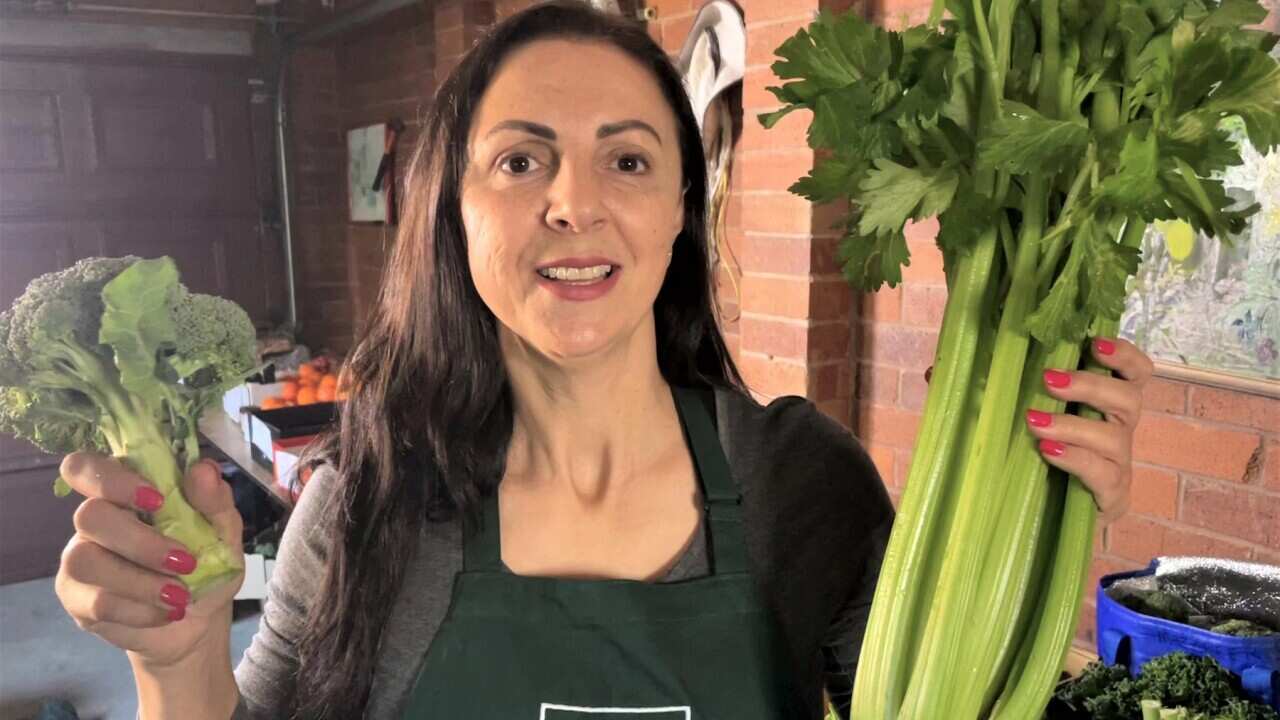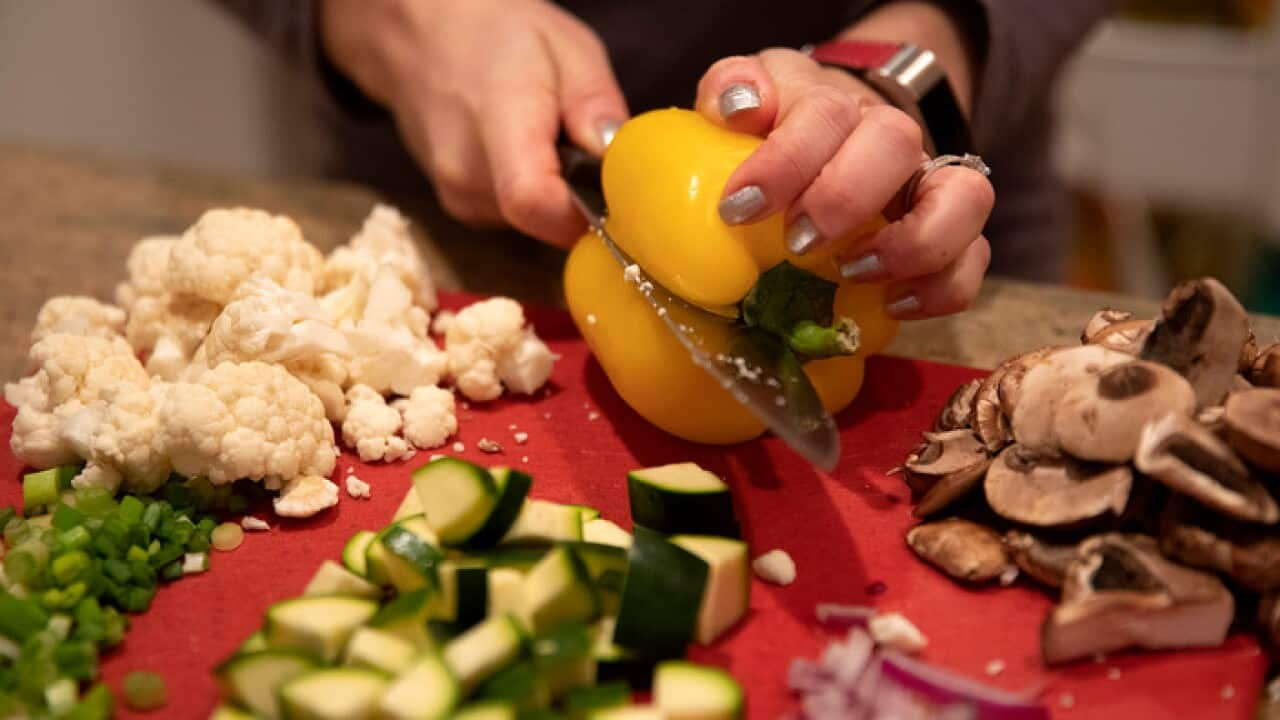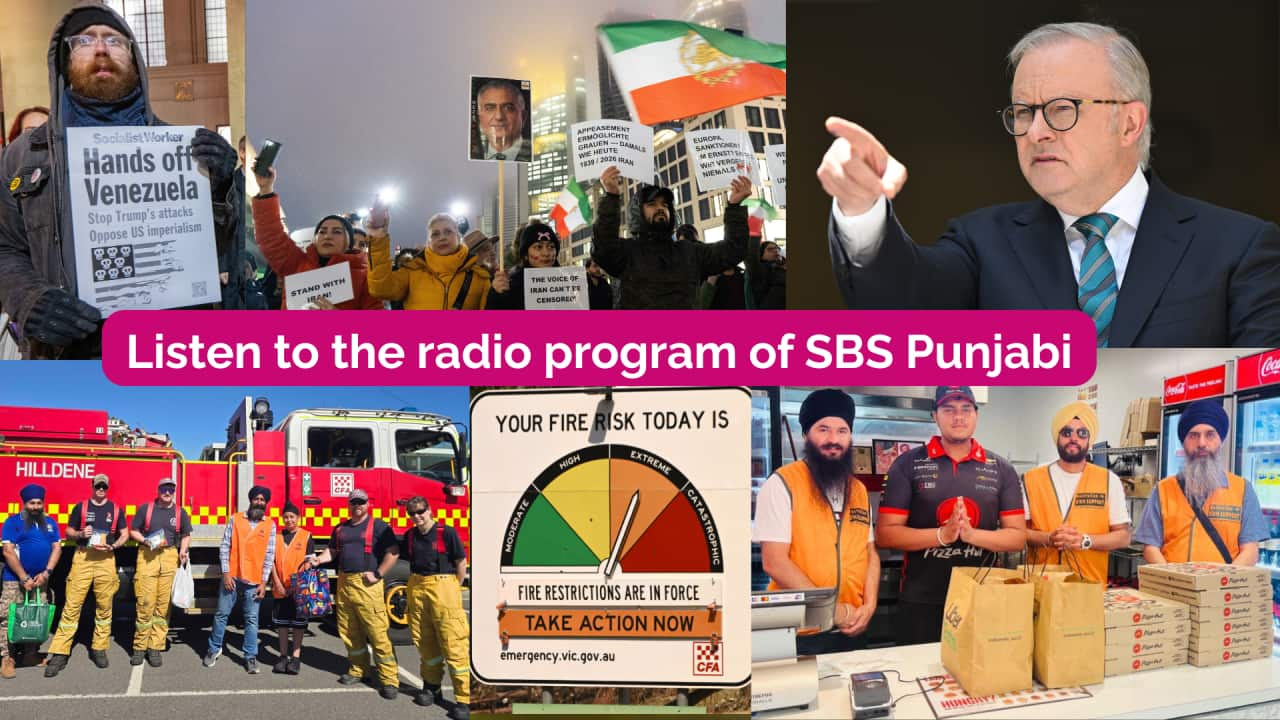An early morning delivery is underway at a food hub in Sydney’s west – it’s run by Julie who packs the food in her garage for collection by local families.
"This morning we got 20 boxes of fruit and veggies delivered to my house. And what we do is we separate them into member's boxes. So we start off with the fruit, the vegetables, the heavy, and then the light."
Julie is among 150 hubsters - as they’re called – and part of a social enterprise called Box Divvy. As the name suggests – members split boxes of fresh food bought at wholesale prices.
And that’s important, with a lettuce is selling for ten dollars in some cities, while Box Divvy icebergs retail for four-dollars-fifty –
"It's a great option because when you compare it to supermarket prices, the box divvy prices are always cheaper by 30 to 40 per cent."
Box Divvy is a social enterprise that started three years ago, and 7,000 families have since joined up in New South Wales and the A-C-T.
Co-founder Jayne Travers-Drapes says the farm-to-family approach keeps transport costs low.
"We don't have huge storage and distribution chains. It literally comes from the farmer. We palletize it and bang out it goes, gets packed the same day and, and picked up by members the same day. So you actually don't need to spend a lot of money to eat fresh."
However soaring prices mean some families are cutting back.
This week’s cost of living figures shows that fresh vegetable prices have risen again in the June quarter - up by almost six per cent.
And that’s worrying for health experts - with the latest Bureau of Statistics figures showing that just eight per cent of children and six per cent of adults eat the recommended daily fruit and vegetable requirement.
Matthew Dick is chief nutritionist at Health and Wellbeing Queensland:
"My initial reaction to the increasing price of vegetables is that, that this is not a something that we need, because vegetable consumption is already quite low. 40% of all cardiovascular disease Is attributed to diet. And so it's a whopping. So increasing in vegetables, eating more vegetables will have a big impact on heart disease and also on chances of stroke."
Those soaring production costs mean shoppers will be forking out more for fresh food for some months yet, which is why co-ops and social enterprises like Box Divvy can benefit both families and farmers.
Detailed information about this can be obtained by clicking on 'Speaker' in the photo above.






